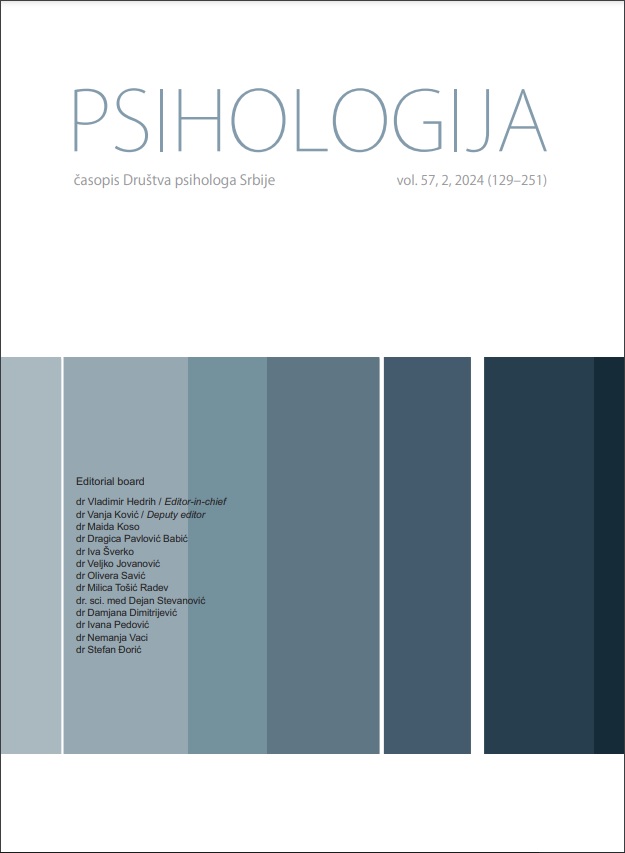A conditional process model to explain problematic smartphone use: The interaction among frustration intolerance, duration of use, and gender
A conditional process model to explain problematic smartphone use: The interaction among frustration intolerance, duration of use, and gender
Author(s): Osman UrfaSubject(s): Social psychology and group interaction, Cognitive Psychology, Clinical psychology
Published by: Društvo psihologa Srbije
Keywords: frustration intolerance; high school students; path analysis; problematic smartphone use
Summary/Abstract: The aim of this study was to investigate the interaction among problematic smartphone use, frustration intolerance, duration of smartphone use, and gender in high school students. A total of 524 students (49.24% males) between the ages of 14−18 years attending high schools in Turkey participated in the study. The Frustration Discomfort Scale and the Smartphone Addiction Scale−Short Form were used for primary data collection. Partial least squares structural equation modeling was conducted to examine the mediator role of duration of smartphone use and the moderator role of gender in the relationship between frustration intolerance aspects (discomfort intolerance, entitlement, emotional intolerance, and achievement) and problematic smartphone use. Entitlement, emotional intolerance, discomfort intolerance, and duration of smartphone use positively predicted problematic smartphone use, but the duration of smartphone use didn’t have a mediating role in the relationship between frustration intolerance and problematic smartphone use. These findings highlight that entitlement, emotional intolerance, discomfort intolerance may directly predict problematic smartphone use.
Journal: Psihologija
- Issue Year: 57/2024
- Issue No: 2
- Page Range: 215-226
- Page Count: 12
- Language: English, Serbian

